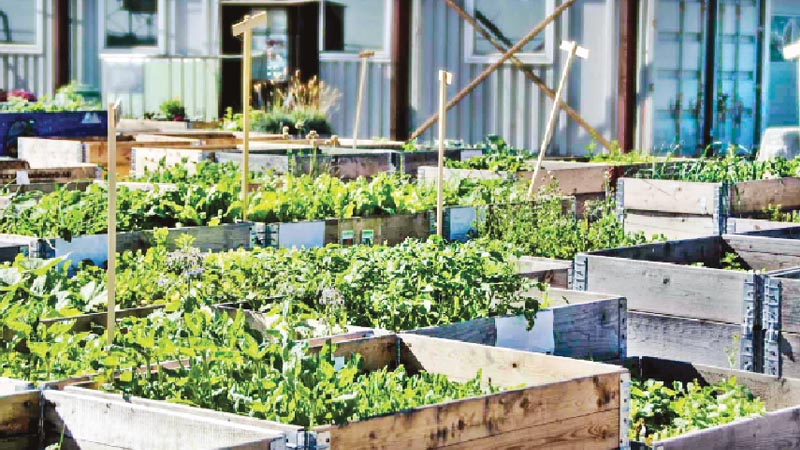Urban farming sees rise in Dhaka


The concept of urban farming is not new, with many South Asian countries including India, China, Vietnam, and Singapore already following the trend, and Dhaka urbanites not far behind in catching up with the practice gradually.
Around 12% urban area residents currently practice urban farming. Despite their relatively small size, urban farms grow a surprising amount of food, with yields that often surpass those of their rural counterparts.
Urban agriculture, urban farming is the practice of cultivating, processing and distributing food in or around urban areas.
In our country, agricultural work is considered lower standard work. Usually, people are not interested in farming in urban areas, but now, the scenario is gradually changing, says Agriculturist and Researcher Ikramul Haque.
Young people can take the initiative to make it more popular by doing it scientifically. Mutually it will benefit us. Media has a role to play by highlighting this theme, they can encourage people, he adds.
Urban farming will help us get direct access to fresh vegetables, fruits, and meat products, and urban agriculture can improve food security and food safety. And so, its value is priceless, he mentions.
Urban farmers often have less pressure from pests and weeds, so they can easily grow organic. And that means fewer toxic pesticides and synthetic fertilizers entering our environment and our food supply. Organically grown fruit and vegetables also contain higher levels of some nutrients, such as antioxidants
“When you have a controlled environment, you get rid of many hazards, but you also use lots of resources, like energy, to produce vegetables and fruits,” says Agriculturist and Professor Mahbub Islam Shuvo.
Urban farming seems to be thriving in all its forms. This is possible for a couple reasons. First, city farms don’t experience heavy insect pressure. Second, city farmers can walk their plots in minutes, rather than hours, addressing problems as they arise and harvesting produce at its peak, he adds.
They can also plant more densely, because they hand cultivate, nourish their soil more frequently, and micromanage applications of water and fertilizer.
In the US, urban farming is likely to have its biggest impact on food security in places that, in some ways, resemble the global south- that is, in cities or neighbourhoods where land is cheap, median incomes are low, and the need for fresh food is high.



